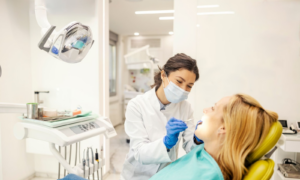Key Functions of Zinc
Zinc supports a wide range of physiological functions and is present in all body tissues.
1. Immune System Support
Almost all immune cells heavily depend on zinc for proper functioning. Both deficiency and excess can damage the immune system.
2. Protein and DNA Synthesis
Zinc is required for DNA synthesis, cell division and growth, protein synthesis, and macronutrient metabolism. It’s also crucial for the development and function of most body systems.
3. Wound Healing and Tissue Repair
Zinc plays a significant role in regulating various stages of the wound healing process, from membrane repair and coagulation to inflammation, immune defense, angiogenesis, and scarring.
4. Taste Enhancement
When we eat and smell, the organs need to send chemical signals to the brain to determine what they are eating and smelling. Zinc is involved in multiple levels of taste perception, including the taste buds, the nerves that transmit taste messages, and the brain.
5. Reproductive System Maintenance
Zinc plays a role in all stages of human reproduction, from spermatogenesis to childbirth. It’s particularly important during pregnancy, labor, and perinatal and neonatal periods.
6. Cancer Prevention
A 2023 study found that disruption of zinc homeostasis may lead to cancer development. While results from studies differ, they all indicate a link between the degree of zinc dysregulation in cells and several types of cancer.
Symptoms of Zinc Deficiency
Because of its many functions within the body, zinc deficiency can affect multiple body systems, organs, and tissues. For a normally healthy person who does not have enough zinc in their diet, common symptoms include:
- Hair loss
- Diarrhea
- Eye and skin problems
- Reduced sense of taste and smell
Children may experience slower growth, while adolescents may be undermined by delayed sexual development.
Foods Rich in Zinc
Since the human body cannot store zinc, it needs to be continuously replenished through diet. According to Ou, foods high in zinc include:
- Raw oysters (highest zinc content at 39.3 mg/100 grams). The maximum daily dietary intake of adult men and pregnant women at just 11 milligrams (mg)
- Beef, lamb, chicken, pork
- Fish and shrimp
- Milk and dairy products
- Grains and nuts
As long as we have a normal diet, most of us will not have much problem, Ou said. However, some individuals may have insufficient zinc bioavailability, which could result in deficiency.
Groups Most at Risk for Zinc Deficiency
Zinc is an essential mineral that plays a crucial role in the body, but certain populations may face challenges in meeting their zinc needs because of specific health conditions or dietary factors. Here are some groups that often struggle with zinc intake and absorption:
- Patients with gastrointestinal diseases or bariatric surgery: Related conditions and inflammation can lead to poor dietary zinc intake, decreased absorption, or increased urinary excretion.
- Celiac disease patients: Caused by zinc malabsorption and mucosal inflammation.
- Vegetarians: Vegetarian diets contain lower amounts of zinc.
- Pregnant or lactating women: Demand for zinc increases during pregnancy and lactation. Pregnant women need to take 3 mg more zinc every day, while breastfeeding women need an additional 4 mg every day.
- Older infants exclusively breastfed: The zinc concentration of breast milk reaches a peak in the first month after birth and then gradually decreases. By six months, infants who are still exclusively breastfed will not have sufficient zinc intake per requirement.
- Children with sickle cell disease: A likely result of chelation therapy treatment that can affect zinc absorption
- Alcoholics: Alcohol consumption decreases zinc absorption and increases zinc excretion in urine.
Zinc Supplements
While zinc supplements can be beneficial, Ou warned that excessive intake may cause toxic reactions, including indigestion, nausea, vomiting, headache, fatigue, and immune function suppression. For adults 19 years of age or older in the United States, the recommended upper limit for daily intake is 40 mg.













